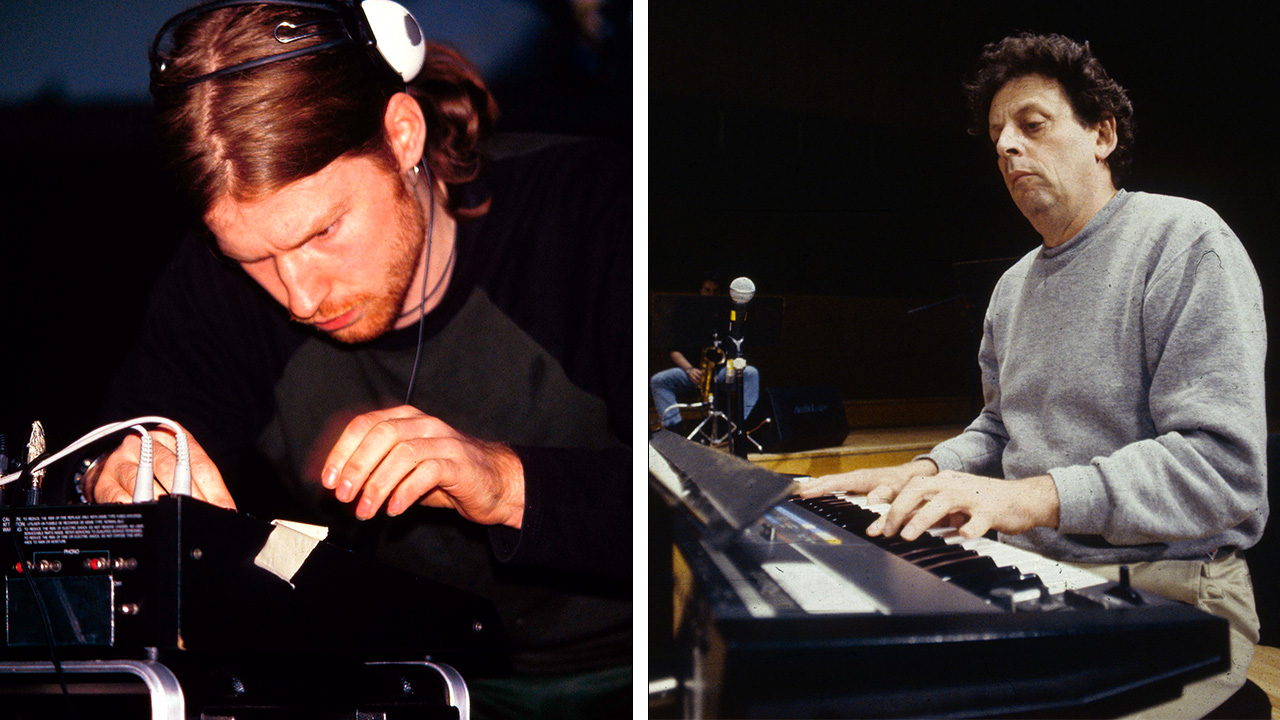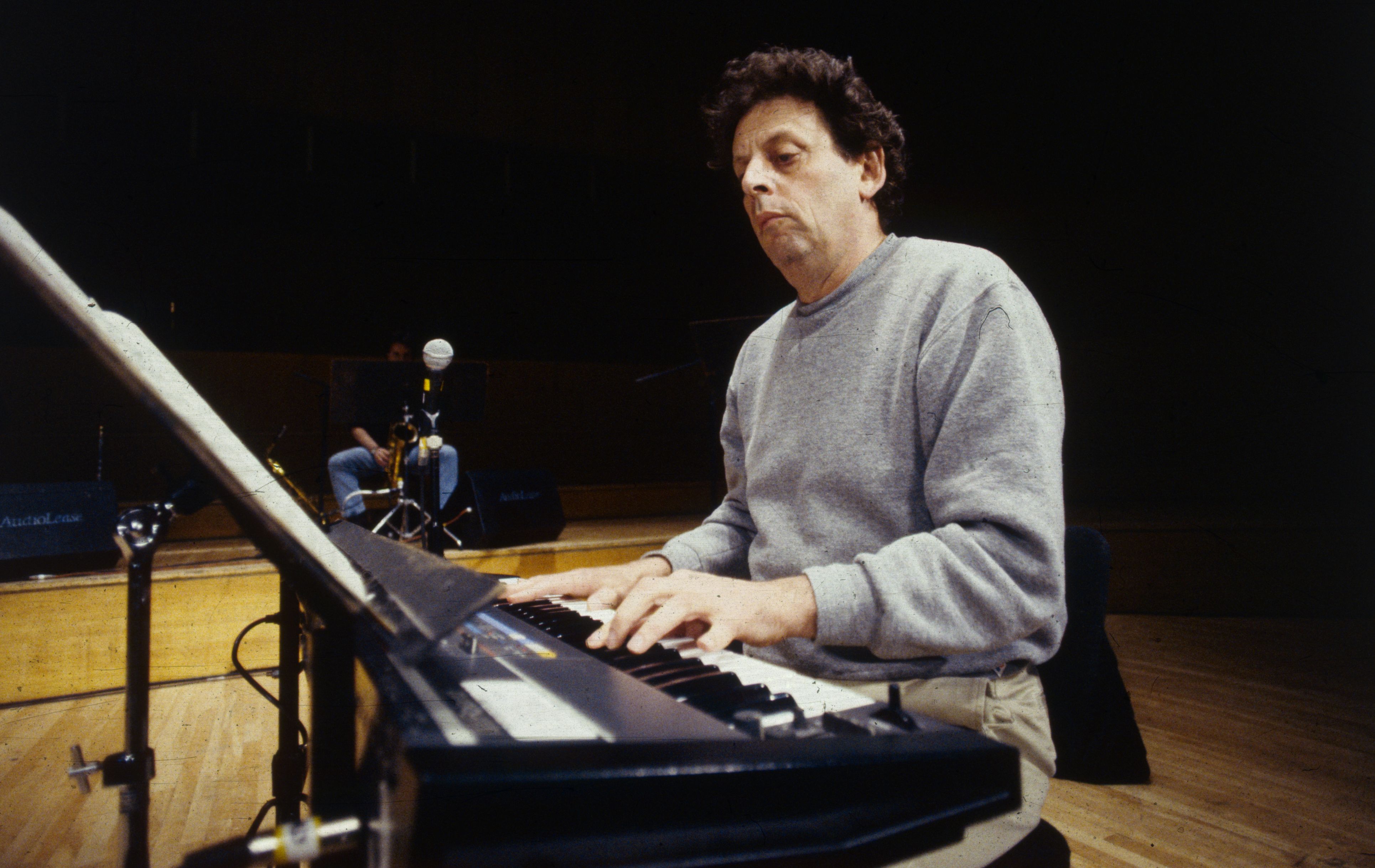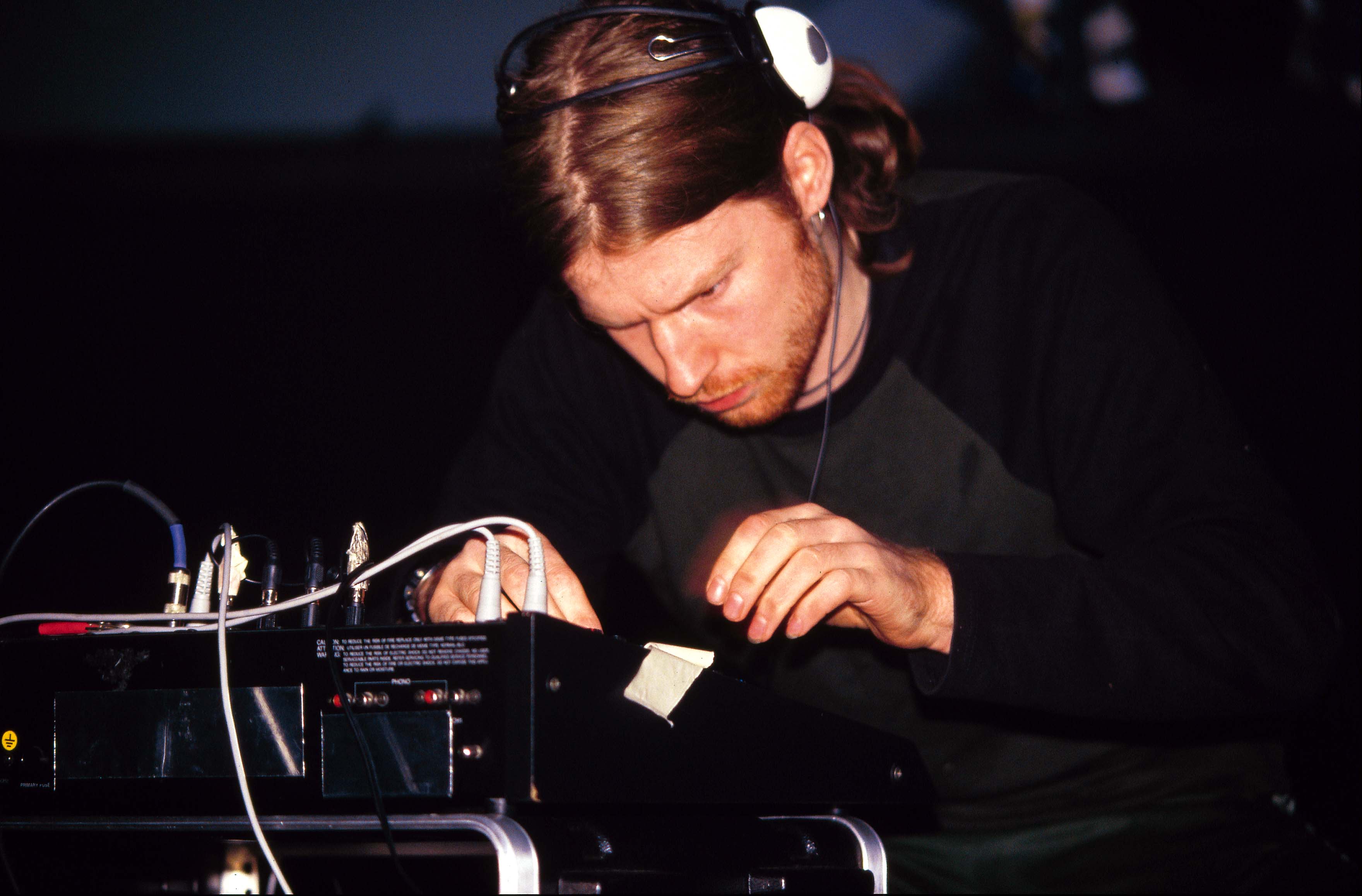“Richard James is quite a nice young man”: How Aphex Twin and Philip Glass came to work together – and what they thought of each other’s music
The minimalist classical figurehead and electronic icon reflect on each other's work in a classic Future Music interview

In 2025, the intersection of electronic and classical music is nothing particularly unusual. From Floating Points scoring a ballet to the likes of Goldie touring with orchestras, the collision of dance music and orchestral composition is no longer the unique novelty it once was.
Back in the mid-‘90s, however, those two realms felt far more separate. It was only the most adventurous musicians on either side of the divide that could see any potential for collaboration with artists from the opposing camp.
It’s hard to think of many artists more adventurous, in classical and electronic music respectively, than Philip Glass and Richard D James. Glass, the American composer and pianist, is a figurehead of minimalism and one of the most influential figures in contemporary classical music.
Richard D James, meanwhile, has earned almost god-like status amongst electronic music fans thanks to his prolific back catalogue of mind- and genre-bending dance tracks released under a multitude of aliases including Aphex Twin, AFX, The Tuss and Polygon Window.
Back in 1995, the two artists collaborated on an orchestrated version of the Aphex Twin track Icct Hedral, which first appeared on the Donkey Rhubarb EP. The track is a reworking of the electronic original, lifted from James’s album …I Care Because You Do, which switches the original’s sampled stabs and rasping, reverb-soaked electronics for orchestrated strings and eerie choral lines.
As Glass explained to Future Music magazine, when the pair were interviewed for the October ‘95 issue, the meeting of minds came about after James wrote an uncharacteristically forthright letter beginning ‘Dear Phil’.
“He got in touch and wondered if I was interested in doing a remix with him,” Glass explains. “He evidently knew my music. I didn’t know him; he’s quite a young guy… Richard James is quite a nice young man.”
Want all the hottest music and gear news, reviews, deals, features and more, direct to your inbox? Sign up here.
As it transpires, it didn't take much effort to get Glass onboard with the idea.
“They sent me a tape and I listened to it;” Glass explains. “But I would have done it anyway because I was interested in him. The only way to find out about these things is to jump in and get your feet wet. You can’t theoretically understand them: you have to get involved. That’s the way I work.”
While Glass was open to the idea of collaborating anyway, he admits that there was also something special he heard in James’s music.
“The only way to find out about these things is to jump in and get your feet wet. You can’t theoretically understand them: you have to get involved.”
“I heard the music and thought, ‘Yes, I can do something with this.’” Glass explains. “[There was] just a kind of intelligence and musicality – basic stuff like that.”
In retrospect, a collaboration between the two musicians makes a lot of sense. Glass’s minimalistic approach to piano compositions might be different in timbre and energy to the ambient techno of early Aphex Twin, but the two styles share an emphasis on simple looping motifs and subtle shifts in rhythm.
Even then, Glass was no stranger to synthesizers either, regularly using them in compositions and live performances. He’d previously worked with pop acts from Linda Rondstadt and Paul Simon to Mark Moore of S’Express.

As he explains in the interview, however, in the mid-90s at least, Glass felt most at home working with the piano.
“Although I've done a lot of synthesizer playing over the years, I guess the piano is a fundamental musical instrument in terms of my own technique,” Glass explains, “but I'm often in situations where the synthesizer is better.
“There's a kind of a swing between the hi-tech world of modern synthesizers and going back to musical instruments. I really travel between the two and I do it very rapidly. Within the course of a year I'll do it two or three times.
“The interesting thing about the piano is that, for the performer, it’s the most responsive equipment,” he continues. “I can control the piano; I can control the sound. On an individual level I can shape the piano in a live situation better than I can with a synthesizer.”
From Richard D James’s point of view, the idea of working with Glass came from a fairly obvious motivation – he was a fan.

“I wanted someone to orchestrate the track Icct Hedral. I had quite a few of his records – about ten – so I thought I'd get in contact with him,” he tells Future Music.
On the whole, it seemed the electronic artist enjoyed the process of working with his classical counterpart across the pond, although in the interview he does raise a few misgivings about the quality of the recording.
“I’m very happy with it,” he explains. “The only criticism I had was that the way they recorded music from real people is different from me. I’d record all the scrapings of the string from a violin, say, and the non-musical sounds. They’d try their best to avoid that and end up getting something ‘perfect’ that sounds like it comes out of a sampler.”
As for the man himself, James repays Glass’s compliment with characteristic playfulness: “Philip Glass is quite a nice old man.”
I'm the Managing Editor of Music Technology at MusicRadar and former Editor-in-Chief of Future Music, Computer Music and Electronic Musician. I've been messing around with music tech in various forms for over two decades. I've also spent the last 10 years forgetting how to play guitar. Find me in the chillout room at raves complaining that it's past my bedtime.
You must confirm your public display name before commenting
Please logout and then login again, you will then be prompted to enter your display name.
